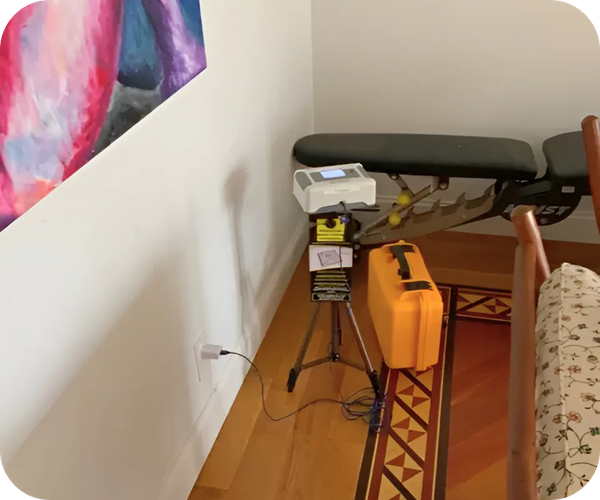Radon Testing
Radon Testing Services in Westchester County
Radon is a naturally occurring, radioactive gas that is invisible, odorless, and tasteless. It is released from the ground and can accumulate inside homes to dangerous concentrations. As a leading cause of lung cancer among non-smokers, it poses a significant health risk. At Sonic Home Inspections, we provide professional radon testing services in Westchester, NY, offering a crucial radon inspection to protect your family's health and ensure your peace of mind.
Why is Radon Testing Important?
The U.S. Environmental Protection Agency (EPA) recommends that all homes be tested for radon. Because you can't see or smell it, testing is the only way to determine the radon levels in your home. While DIY kits exist, a professional home radon test conducted by a certified inspector provides the most accurate and reliable results, which is especially critical during a real estate transaction. This ensures that you have a clear understanding of any potential risks and can take appropriate action.
Choose Sonic Home Inspections For Radon Testing
Expertise and Experience
Our team specializes in conducting thorough property assessments to identify the presence of radon. We leverage our several years of industry experience to help customers breathe fresh air devoid of this potentially hazardous gas. Our team is dedicated to ensuring the safety of your property and your family.
State-of-the-art technology
Our experienced professionals use cutting-edge technology and techniques to provide accurate and reliable results. We offer short-term and long-term testing options to meet the unique needs and budgets of our clients and recommend the best course of action to maintain a safe and healthy living environment.
Comprehensive Services
You can rely on our technicians to do the job right. Our top-quality radon testing services are thorough and comprehensive. Our team understands the grave risk that radon can pose to your health. As every property is unique, we offer customized solutions and tailor our services to fit specific needs.
Prompt and Reliable Results
Swift action is of utmost importance when it comes to radon gas presence. Our team is not only dedicated to providing prompt testing and analysis but also timely results and solutions. We aim to provide same-day results so you can act quickly if the results show the presence of radon gas in your home.
Commitment to Customer Satisfaction
Our company always prioritizes customer satisfaction. We consider our customers' convenience and take pride in providing excellent customer service with each job that we undertake. Our team works tirelessly to provide the quickest and most detailed testing available in the region.
Our Radon Testing Process
Our radon screening process is simple, non-invasive, and highly effective. A certified inspector from our team will place a state-of-the-art continuous monitoring device in the lowest livable area of your home. This device performs an accurate radon measurement by taking hourly readings over a period of 48 hours. Once the test is complete, we retrieve the device and provide you with a detailed report of the findings, including an hour-by-hour breakdown and an overall average.
Radon Testing for Real Estate Transactions
A radon test is a common and important contingency in real estate contracts. As a buyer, testing allows you to identify potential issues before you purchase. As a seller, having a recent, professional test can provide transparency and build trust with potential buyers. An accurate report is essential for fair negotiations and ensuring the safety of the property's future occupants. This service is often scheduled alongside a comprehensive general home inspection.

Schedule Your Westchester Radon Test Today
Don't leave your family's health to chance. Whether you are buying a new home or want to ensure your current one is safe, our team is here to help. Contact Sonic Home Inspections to schedule your professional radon test and get the accurate results you need.
